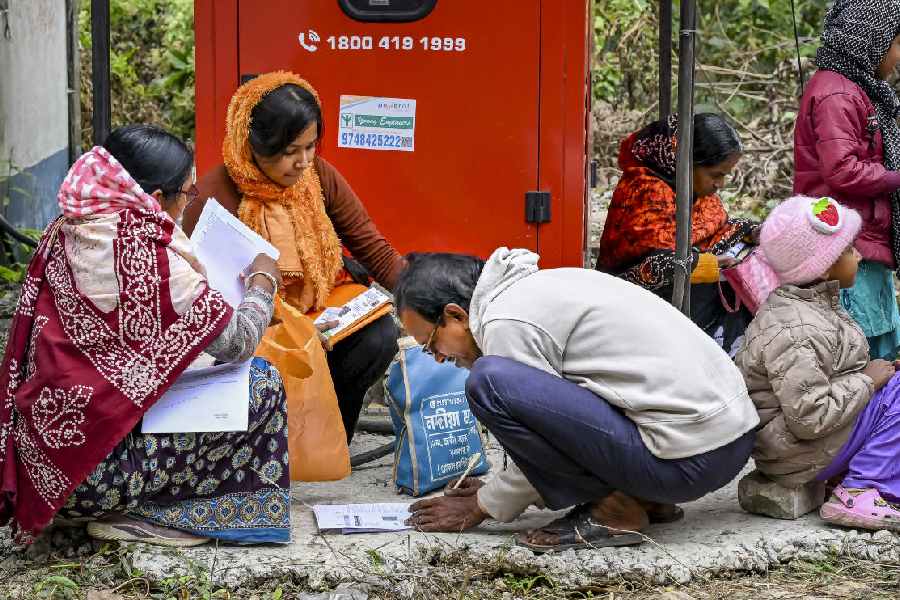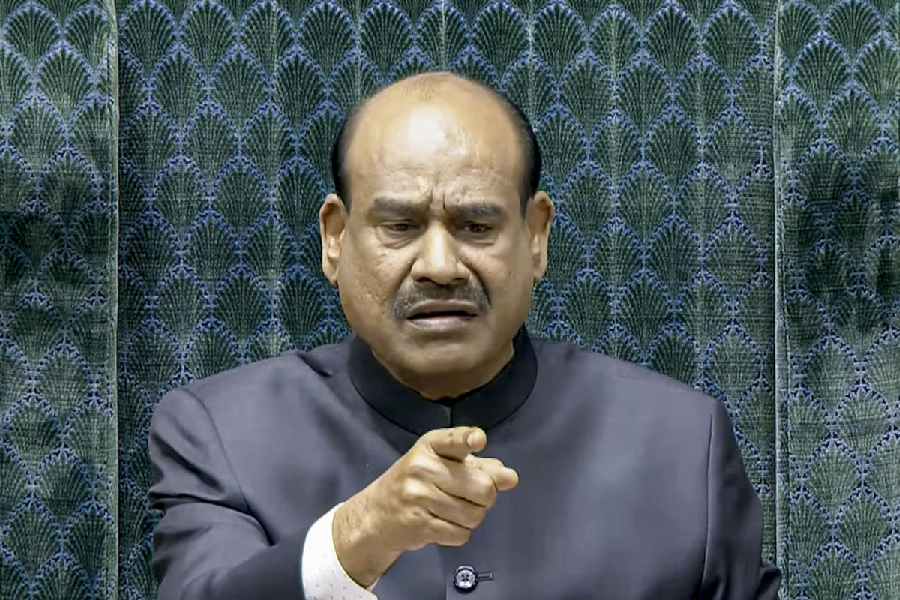 |
| Pakistani lawyers mark the 10th anniversary of the nuclear tests in Multan. (Reuters) |
Islamabad, June 5: The garden is in full bloom at Abdul Qadeer Khan’s house.
A lazy summer haze has settled over his home. At the small police sub-station across the road, several men are chatting amiably barely glancing at the upscale villa that for the past four years has been part prison, part palatial refuge for the father of Pakistan’s nuclear bomb.
Until very recently, Khan has been virtually cut off from the world — banished to house arrest by Pakistani President Pervez Musharraf after admitting in a national television broadcast in 2004 to selling nuclear weapons-making technology and knowhow to Iran, North Korea and Libya.
But as Pakistan marked the 10th anniversary of its first nuclear bomb test last week, Khan, 72, publicly disavowed his confession, telling reporters that it was coerced.
“The people who were advising me to do this said: ‘No one will believe it. This statement has no legal value. Everyone knows you are a national hero,’” Khan said this week in a telephone interview with The Washington Post.
Pakistan has been under pressure for years to give the US and the International Atomic Energy Agency access to Khan. So far, the government has refused, saying Pakistan has already conducted its own investigation into Khan’s nuclear dealings.
Yet more recently, as Musharraf’s power here has waned, so too, it seems, has American interest in Khan, according to a US official who spoke on the condition of anonymity because of the sensitivity of the subject.
Reviled in the West as the ringleader of an illicit international nuclear-arms bazaar, Khan remains a much respected figure in Pakistan for building the bomb. In the interview, Khan struck a defiant tone about his role in the development of nuclear technology, denying any wrongdoing and saying he would never talk to US about his work.
“Why should I talk to them? Pakistan is a sovereign nation. We are not a colony. I did whatever my government wanted me to do. I gave them whatever they wanted. We have not violated any laws,” Khan said, noting that Pakistan is not part of the nuclear Non-Proliferation Treaty.
Khan’s career in nuclear espionage began shortly after he was hired, three years after Pakistan was routed in a war with India over what is now Bangladesh in 1971. In the interview, he said it was his country’s humiliating defeat that had sparked his desire to help Pakistan build the bomb.
He said the creation of a nuclear weapons programme was a proud achievement.
“My work to support Pakistan was that we showed that we could not be overrun by India, that we should not find ourselves in the position we found ourselves in 1971 with East Pakistan,” he said.










